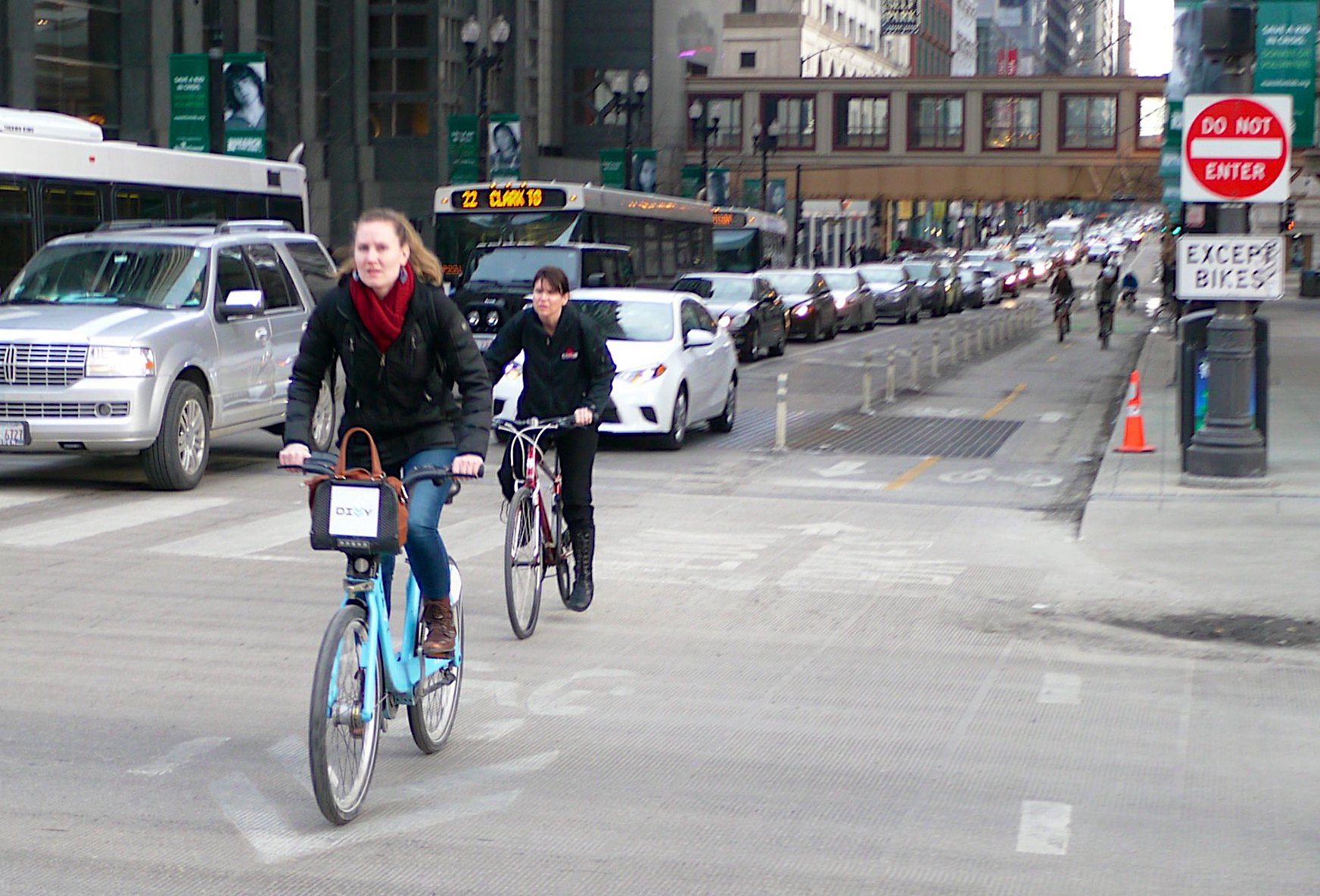Today the city of Chicago announced several initiatives designed to make travel easier and more affordable for frontline pandemic workers; provide some financial relief for struggling taxi and ride-hail drivers; and help all Chicagoans get around during these trying times.
First let's start with the fun stuff: biking. It's best to avoid public transportation during the pandemic if you can in order to reduce your viral exposure and make transit safer for employees and people who must ride it. Cycling is a great alternative that allows for "social distancing," safe separation from other people. Today through April 30, Divvy is offering critical healthcare workers free bike-share rides. Eligible healthcare workers can sign up through their employers to access unlimited 45-minute trips on non-electric Divvies for 30 days. (Divvy hasn't deployed any electric bikes yet anyway.) Interested healthcare companies can email herobikes@lyft.com to learn how to receive free memberships for employees.
Regular folks get a break on Divvy as well. Through the end of April, the price of a new annual membership will be cut in half from $99 to $49.50. The system will also be slashing the price of single rides from $3 to $1.
Chicago Department of Transportation commissioner Gia Biagi noted that cheaper access to the bikes for those who don't already have memberships will make it easier for people to get where they need to go safely. “While many Chicagoans are working from home, there are still many of us who need to get around the city, and these price reductions are aimed at keeping everyone mobile as they continue commuting to work and seeking essential goods and services.” She noted that the bikes are also useful as a first- and last-mile solution for getting to and from transit stations. Read about Divvy's sanitation protocols during the pandemic here.
As for transit, the city said there are no plans for CTA service cuts during the outbreak. Moreover, in order to help residents who won't be using their CTA passes while Illinois is under a "Stay at Home" order, at least until April 7, the transit agency will offer them a prorated credit for any unused days on active 7- and 30-day passes. Customers with an active Ventra pass that they are no longer using are eligible to receive a prorated credit for any remaining days, based upon when the pass was last used. Prorated credits will be issued as a “transit credit” that will be automatically added to the cardholder’s Ventra account. Transit credit can be used to purchase a pass at a later date or to pay for CTA travel on a pay-as-you-go basis. To learn more and request a credit, visit the Ventra website.
Another initiative announced today is financial breaks for taxi and ride-hail drivers. (Note that it's difficult to practice social distancing via these modes, so they should only be used when absolutely necessary.) The city previously announced that it will be delaying collection for several fines and fees through April 30, such as the collection of the Ground Transportation Tax for cabbies, Uber and Lyft drivers and other public passenger vehicles. The city has also already announced an extension of the deadline for debt checks for taxi and ride-hail drivers until April 30. The Chicago Department of Business Affairs and Consumer Protection is also deferring collection of the accessibility fee for taxis and ride-hail until April 30 and deferring inspections of vehicles and renewals of licenses while BACP offices are closed.
The city says BACP is working to further help out the taxi industry with a direct subsidy while a short-term financial subsidy is being considered for wheelchair accessible vehicle operators and taxis that provide rides for the Taxi Access Program. These measures are being taken to support taxi drivers and paratransit operators while ensuring transportation options remain available for people with mobility challenges.
During the Stay at Home order, paratransit passengers are required to limit travel to "essential activities" only. Yesterday Pace began waiving its $3 fare collection on its TAP rides. Riders are still required to present a TAP card to the taxicab operator at the beginning of the trip, and if the ride costs more than $30, the passenger will need to pay the remainder. This policy will be in place until further notice.
Granted, Chicago should be going bolder with its plans to make transportation safer and more convenient during the pandemic. Several U.S. cities are making buses free during the outbreak to allow for rear boarding, which helps prevent transmission between passengers and drivers, as well as taking other steps to facilitate social distancing between passengers . This is crucial: A CTA bus driver operating out of the Forest Glen garage recently tested positive for coronavirus.
And cities like Bogotá, Colmbia, Mexico City, and Philadelphia are creating emergency bikeways and/or car-free streets during the pandemic to de-crowd transit and facilitate safe biking for transportation and recreation. We'll feature Commissioner Biagi's responses to these ideas in a post later today.
Here are some tips on preventing the spread of coronavirus, and advice for Chicagoans on what to do if you think you may have been exposed to the virus.





